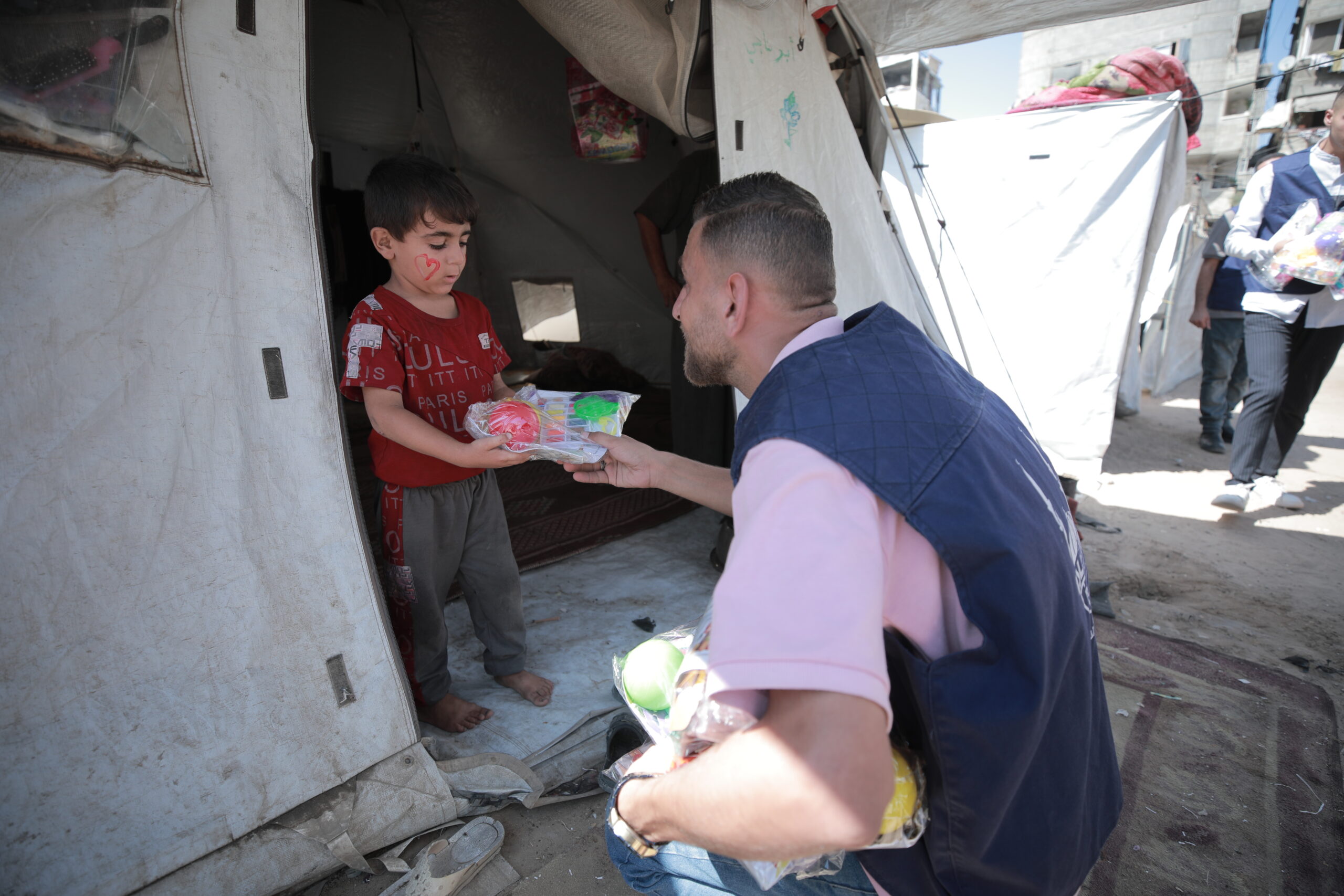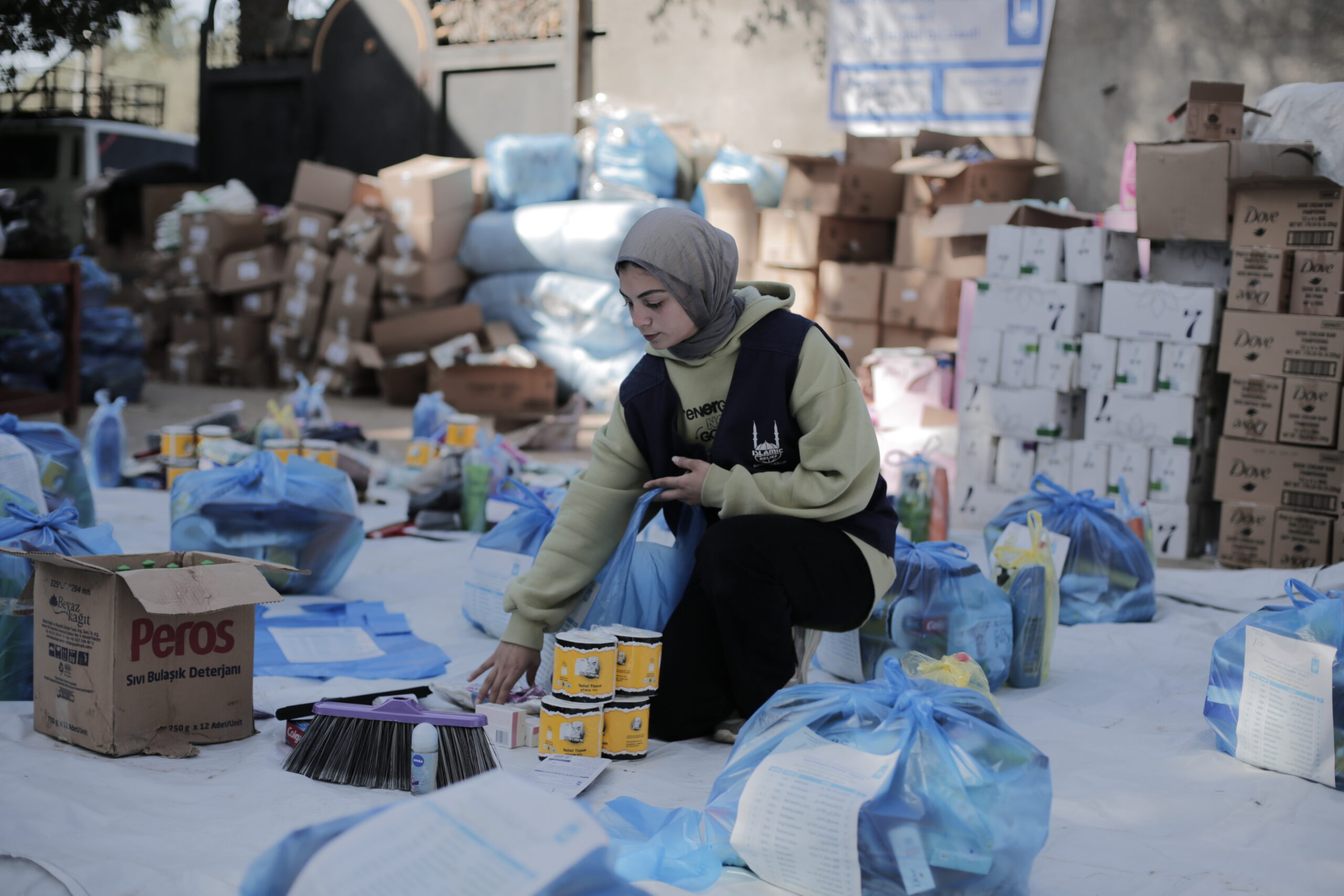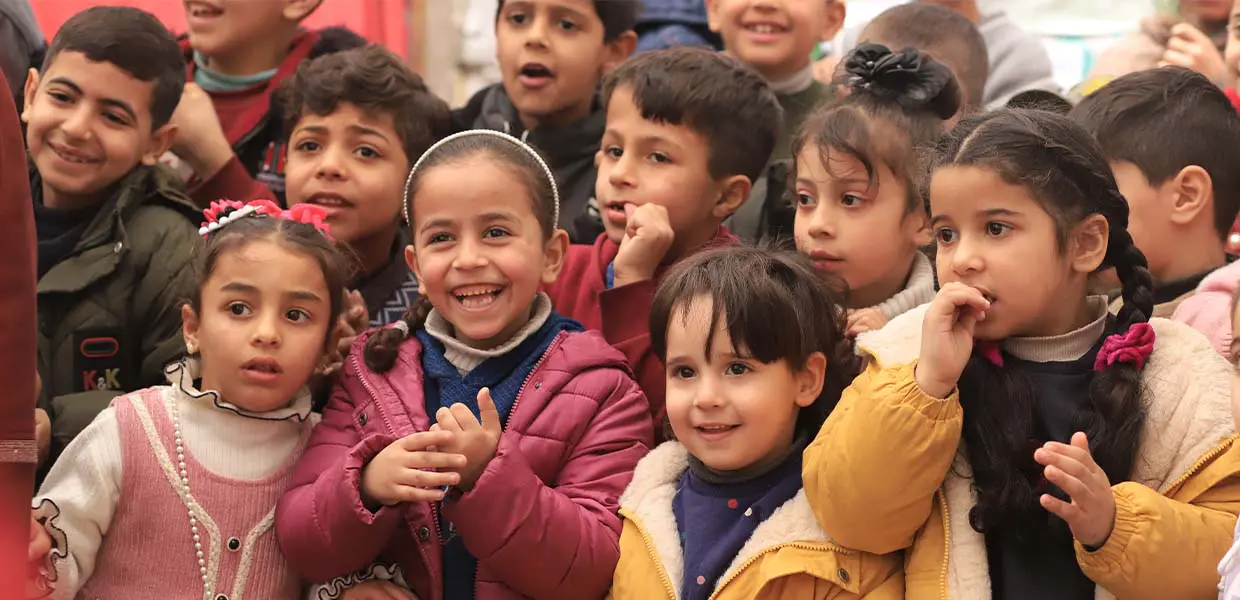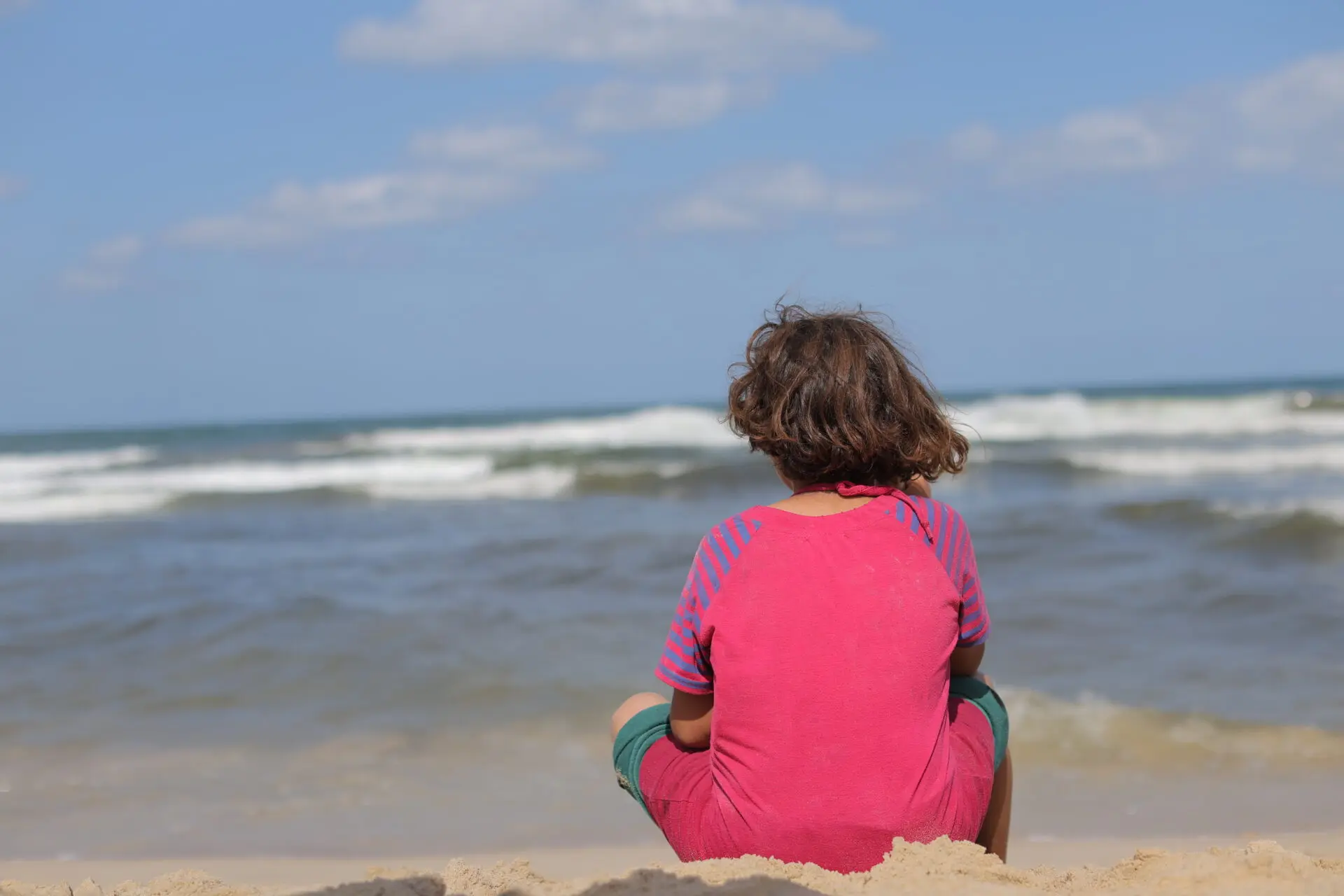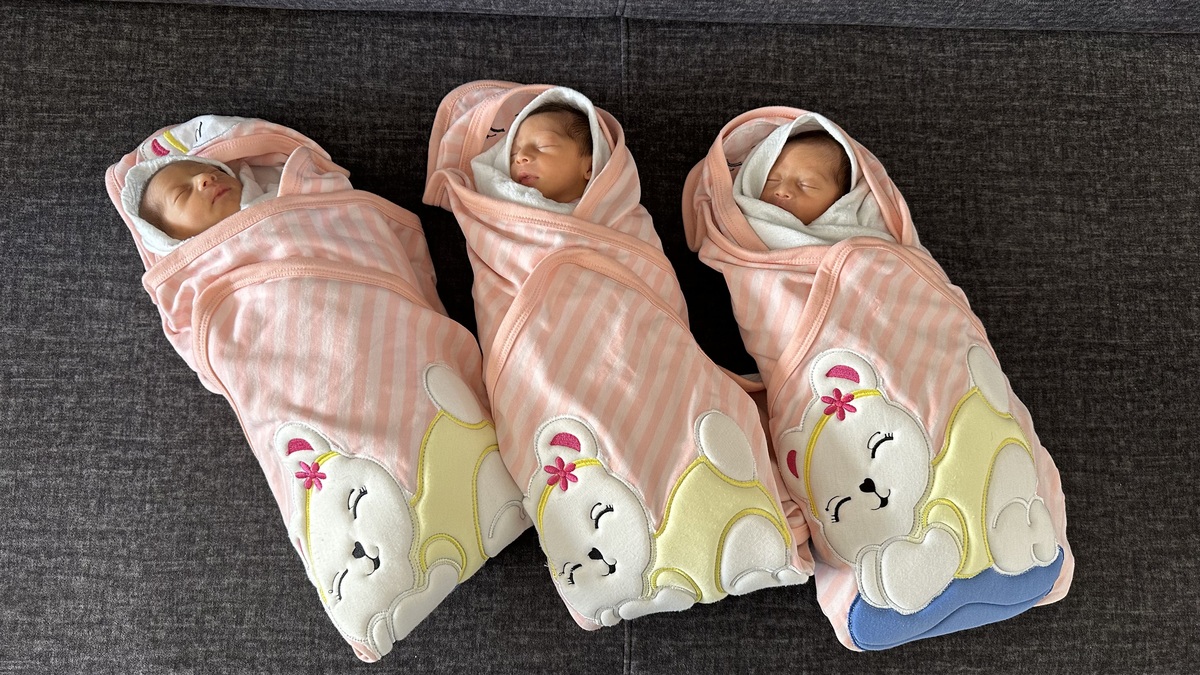
07.25.25
“Three tiny miracles” born amid bombing and mass starvation in Gaza
Triplet girls born through Islamic Relief’s maternal healthcare project, which provides rare lifesaving services in besieged Gaza.
Israel’s assault and blockade have turned Gaza into the worst place in the world to give birth. Dozens of babies and infants have starved to death. Where many pregnant women are now too malnourished to stand, and even doctors are facing starvation.
The Israeli blockade has cut off essential supplies, forcing pregnant women to undergo operations without anaesthetics. For nurses to squeeze three or four babies into a single incubator.
Doctors also report a huge increase in miscarriages. Where 28 children are now dying every day1. Moreover, Islamic Relief analysis shows July is now Gaza’s deadliest month since January 20242.
Amid the horrors, an Islamic Relief project to provide pregnant women with maternal care recently delivered triplet girls – Israa, Ayla and Aylol – all born underweight but alive.
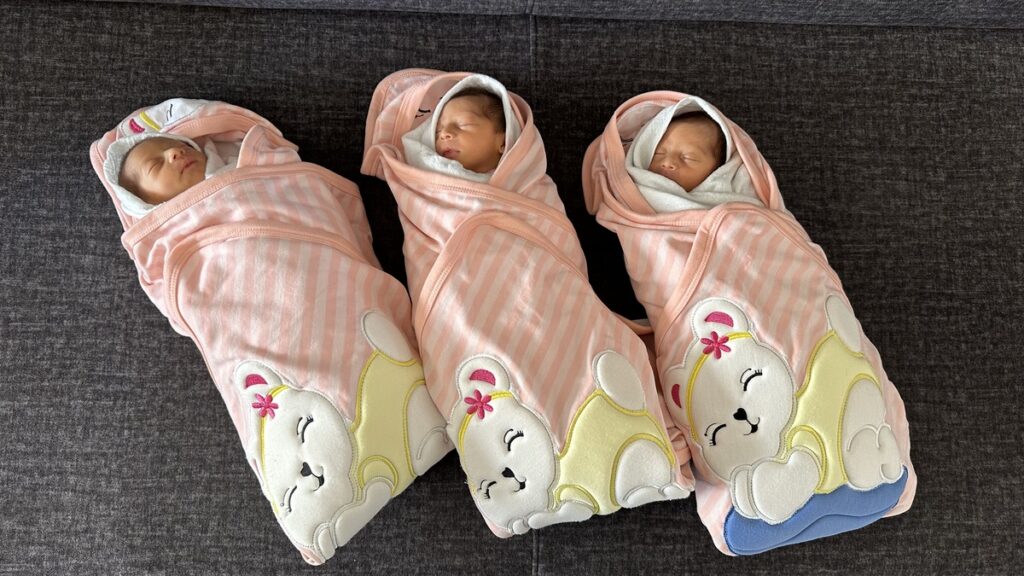
“They are my miracle. My proof that even in war, life insists on being born.”
During pregnancy, Alaa, 31 was terrified: “There were nights I went to sleep crying, not knowing if my daughters would still be alive in the morning or die. Two of my cousins had miscarriages this year – one lost her baby in the eighth month. I was sure I’d be next.”
Alaa and her family – her husband Louay, 36, and their two children, 7-year-old Alma and 2-year-old Ahmed – have been forcibly displaced three times by the relentless Israeli bombing and military orders demanding that Palestinians leave 88% of Gaza.
One night, the house next door was bombed, so Alaa and her family fled into the dark. “We ran in silence. I held my stomach with both hands and prayed my babies wouldn’t slip away while I escaped death,” she says.
Alaa and her family found shelter in an overcrowded school building. Inside, there was hardly any food, no clean water and no medical care. She became increasingly malnourished, and her hemoglobin dropped to dangerously low levels.
She was dizzy and weak when she met staff from Ajyal Association, one of Islamic Relief’s partner organisations in Gaza. Then, they registered her on our maternal healthcare project, which has so far supported more than 1,080 pregnant women and newborn babies.
Through this project, Alaa received regular check-ups, blood tests, vitamins, and ultrasound scans at Al Awda hospital, where Islamic Relief has previously provided vital equipment such as incubators that are still being used now.
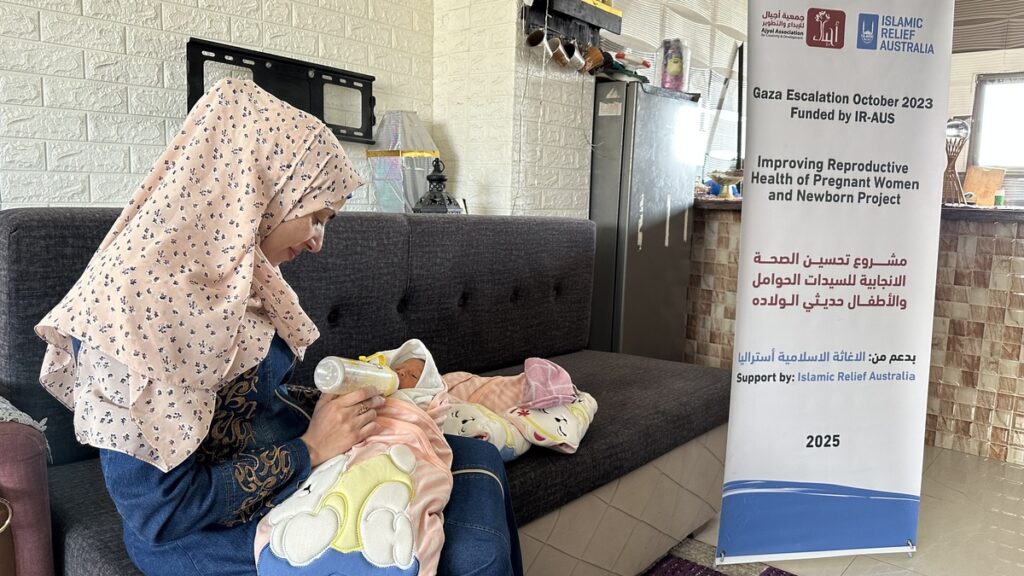
New incubators are among the many medical supplies that are now effectively banned under the Israeli blockade, as well as other vital maternal care equipment, such as ultrasound devices and oxygen pumps, and fuel to keep hospital services running. Most pregnant women in Gaza are now unable to get any pre- or post-natal checks.
Medics at hospitals like Al Awda are risking their lives to keep services going.
The Israeli onslaught has killed more than 1500 health workers and forced two-thirds of primary healthcare centres and half of all hospitals to completely shut down. The rest struggle to keep even partial services functioning. Al Awda has been besieged and hit by Israeli bombs dozens of times, injuring staff and patients and destroying medical supplies and storage facilities.
Alaa says that despite the extreme challenges, she was treated with care and dignity. “The medics didn’t just ask about my babies, they cared about me. They reminded me that my life matters too.”
During one of the checkups, doctors told Alaa she needed an emergency caesarean section, which has become increasingly necessary in Gaza during the crisis. Alaa and her family couldn’t afford it so Islamic Relief covered the costs, as well as the cost of the emergency blood transfusions.
Alaa says, “During the (C-section) operation, I lost a lot of blood. I could feel myself fading. But I heard a cry from one of my daughters.”
That cry brought me back. Without this project, I wouldn’t be here, and neither would they.
“This wasn’t just a medical intervention; it was a rescue mission for four lives.”
The triplets, born in April 2025, were born premature and underweight at 1.8kg (3.9lbs). They are now relatively healthy. But they still remain at risk from the dangers that face all babies and young children in Gaza.
Child malnutrition is rocketing as Israel uses starvation as a weapon of war, blocking humanitarian aid then shooting people trying to get food. Hundreds of thousands of families are now forced into just 12% of Gaza’s territory, with children at greatest risk as diseases spread amid the overcrowding.
Islamic Relief continues to demand that international governments take meaningful action to ensure a ceasefire. To end the Israeli blockade and ensure full, unimpeded humanitarian access. So that children like Israa, Ayla and Aylol can not only survive but have a safe and dignified future.
Notes
1 Figures from UNICEF
Islamic Relief has worked in the Occupied Palestinian Territory since 1997. During the current crisis our Palestinian staff and partners have provided vital aid to more than 600,000 people, including food, water, healthcare and education.
In the ongoing crisis, Gaza needs your help
Help us provide urgent medical supplies and other crucial, life-saving support now to families in need by giving with Islamic Relief.

